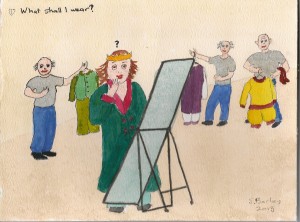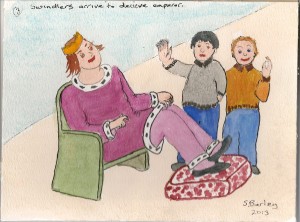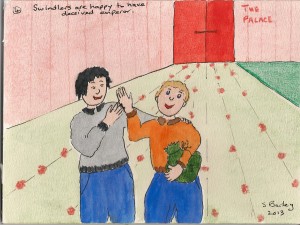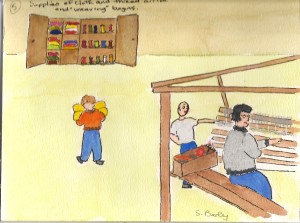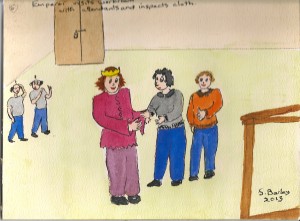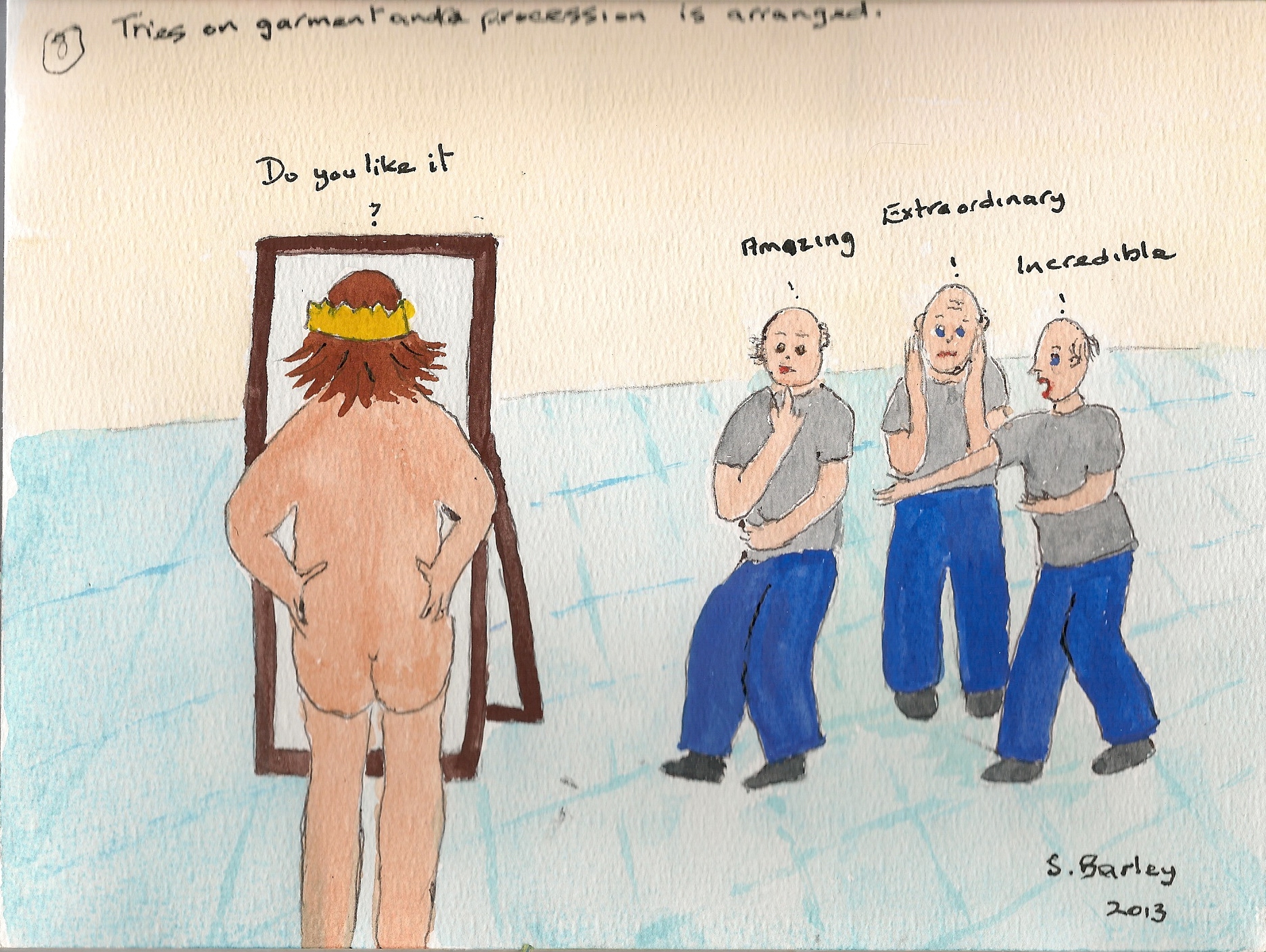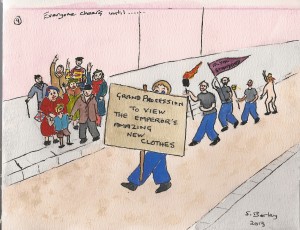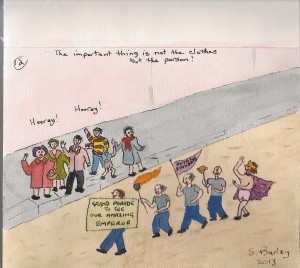Posts in Category: Reading
Will include reading methods and tips, reading files and other resources.
Some Features of Australian Society
Introduction
As with language, society is constantly changing. Also, it goes without saying, no country’s people are all identical in personality and behaviour. So, please note, the outline here is just a brief snapshot of Australian society.
Australian society used to be much more egalitarian, easy-going and casual. Traditionally, Australian society had probably 60% of people in the same class (working/ middle class). Increasing economic inequality over the past 50 years has shown itself by people more concerned about such things as high-earning occupations; large houses; fashionable clothes and fancy cars. However, most Australians still cling to “the idea” that we are all equal.
Business clothes (dress)
in general, although some people wear suits, many Australian people dress more casually for work than Japanese. Denim jeans is not so common, but other casual (but neat) pants and shirt (or skirt and blouse for women) is OK. At interviews, suits are most common.
Business meetings (visits)
We don`t have quite as many meetings and out of work dinners and parties as Japan. At a business lunch or dinner, business comes before the meal or drinking and socialising. Business cards are not normally exchanged upon first meeting. If you need a colleague’s contact information, it is ok to ask them for their card. It is also ok to offer someone your card. But there is not an elaborate ritual of exchanging cards
Demeanour
Australians (in general) are more assertive than English people and less assertive than Americans. Australians are certainly a bit more assertive and quicker to speak their opinions and disagree than Japanese. We also touch much more than Japanese and make eye contact more.
Dining (eating)
BYO (bring your own) alcohol and often food is still fairly common. At restaurants bill splitting (friends, couples, bigger groups)is also common.
Forms of Address
We don´t often call people Mr Smith, but rather Robert. We almost never call another adult “Sir” except in business letters. Some service people may address customers as “Sir or Madam”.
Gestures and body language
Australians use typical Western gestures for things such as “Come here, go away, stop, pointing, shaking hands”. Many of these are quite different to Japanese versions.
Giving Gifts
We only usually give presents on Xmas, weddings and birthdays. Most people try to give fairly modest, inexpensive gifts. We seldom give gifts to people we have just met.
Holidays
Most workers get 4 weeks paid holiday. There is also a few days leave for sickness or special events. School teachers get 8 weeks holiday. (but they deserve it!)
Noises
Australians will accept much more noise from neighbours than do Japanese.
Personal Space See Demeanour
Religion
In the past, Australian society has been very secular (like Japan) and certainly not as fundamental as many American religious people. For example, although most Australians say they are Christians, not so many go to church regularly. Recent conservative Australian governments show more leanings towards religious fundamentalism. For example, although the majority of Australian people are tolerant towards gay persons, the government refuses to consider legalizing same-sex marriages.
Smoking
This has become very socially unacceptable in the past 10 years. There are very few public places where you can smoke now.
Social visits
Much more than Japanese, we meet our friends at each others houses. In Japan, I got very few invitations to visit Japanese people at their home. Japanese seem to meet more at restaurants and Izakaya.
Stereotypes
Australians are friendly, easy going and not very formal. We regard workers as equal in status to bosses and address them equally.
Telephone Etiquette
similar to Japan I think.
Tipping
It´s not common practice to tip (taxis, waiters, etc.) in Australia.
Toilets
We say toilets, rather than bathrooms or rest-rooms.
We “have” a shower (or bath), we don`t “take” a shower. (unlike Americans)
Australian English
Australian English (a short introduction)
Some explanation of Australian English
Please keep in your mind that Australian language is changing (as language does in other countries). This is a result of great changes in society. As the society changes, so does the language. So, older Australian idioms and slang are not used so much by all Australians anymore. Also American slang such as “dude”, “cool”, “chill out” and “bling” have become common.
- Common old Australian slang words
mate friend
ta thank you
ta-ta bye bye, or see you
sanger a sandwich
banger a sausage
barbie barbecue
bewdy! great! [beauty]
footy Australian football
- A few common Australian words and phrases
The big smoke – This is what country people call the big cities.
The sticks – This is what city people call places in the country. (it means far away from the convenience of the city).
Don’t worry about it – it’s ok OR don’t take too much trouble.
Good on you – I like what you said or did.
Hang on – wait a minute.
BELOW ARE MORE EXAMPLES
A. Did you bring an umbrella?
B. No, I forgot.
A. Don`t worry about it, I have 2 umbrellas.
B. Good on you.
A.Can you help me?
B. Hang on, I`ll just answer my phone first.
A. Ok, I`ll wait.
“Don´t worry about it” (This is casual speech)
You say it if somebody apologises about something, e.g.
A. I´m sorry I´m late
B. Don´t worry about it.
If somebody thanks you e.g.
A. Thank´s for the lift.
B. Don´t worry about it.
(if you spill a drink, or bump into somebody)
“a lift” – a ride in somebody else´s car.
“do you mind?” e.g.
A. Do you mind giving me a lift into the city?
B. Sure, no worries.
(not a problem)
“Good on you” –
This is a sign of good feelings toward you.
Somebody may say this if you help them carry shopping groceries,
or if you open the door for them
or if you have been doing something good like hard study, or you have finished writing an essay.
- Common greetings
A bit formal –
A.Good morning/afternoon
B. Good morning/afternoon
A.How are you?
B. Fine thank you, and yourself?
A I`m well, thank you
A bit casual –
A.Good day, mate B. Good day.
A .How you going? B. Pretty good, and you?
A. I`m good.
Very casual –
A.Hi B. Hi
A. How are you? B. Not bad
A. What`s new? B. Nothing much.
A. Did you have a good weekend? B. Pretty good.
Using English for Instructions
Tour Guide English
English for JapaneseTour Guides
The Yomiuri Shimbun reported recently that an estimated 867,100 foreign tourists visited Japan in September 2013. This was an increase of 31.7 percent from a year earlier.As the 2020 Olympics approach, the number of overseas visitors to Japan is likely to boom. Whether you are a professional or a volunteer; working as a tour guide can be very interesting and rewarding. A great deal of unique words phrases and expressions are used in the field of tourism. As a guide for domestic tourists; you already know most of these in your own language. But knowing tourist language in English will be very useful for an international tour guide.
English in Sport
Most people like some form of sport. Sport is a great way to bring people together!
It’s certainly very useful when you have work colleagues or new friends from a different country that you want to talk with. We start by looking at tennis. But don’t worry I plan to add soccer and other sports eventually.
High School in Australia
[Please realise this outline is only a very brief “snap shot”. You can do a Google search or follow the web addresses below, if you want to find out more about Australian high schools.]
Omamori (charms, amulets and talisman)
Charms, amulets and talisman are various objects of luck. In all countries around the world many people use charms to bring them good luck, or to avoid bad luck. In Japan, for example, they are called omamori. Please realise, these are old traditions, and not everybody believes them completely.
